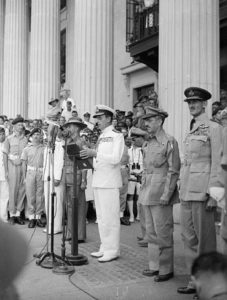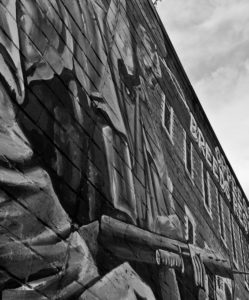 As an addendum to my post on the documentary concerning The Troubles in Northern Ireland that was shown recently on the BBC I thought I should make mention of a second BBC programme that was broadcast but a short while later.
As an addendum to my post on the documentary concerning The Troubles in Northern Ireland that was shown recently on the BBC I thought I should make mention of a second BBC programme that was broadcast but a short while later.
This excellent and most moving film – by director Sam Collyns – concerned the assassination of Lord Louis Mountbatten (second cousin once removed to the Queen) at Mullaghmore in County Sligo, in the Republic of Ireland. The programme also detailed the bomb attack that was carried out on the same day at Warrenpoint on the Irish border, the which resulted in the single greatest loss of life suffered by the UK armed forces during the conflict. I was particularly moved by the testimony of those who lost loved ones on that dark day – not least one of Mountbatten’s granddaughters who was able most eloquently to put into words the terrible and lasting void left by that senseless act.
The reason for these documentaries being shown in such quick succession is that their respective anniversaries – of the start of the troubles in 1969 and of the death of Lord Mountbatten ten years later in 1979 – both took place during the month of August, at a time when many peoples would have been thinking more of holidays, sunshine and relaxation. Mountbatten was himself, of course, on a family holiday at the time of the tragedy.
August 27th 1979 was a bank holiday Monday in the UK (in Canada this would be called a long weekend). The date sticks clearly in my mind because the band in which I then played (my first band) had driven from London to Edinburgh overnight that very day to commence a week of engagements playing at the Fringe Club (then as now this bank holiday fell during the Edinburgh festivals). The first that we knew of these atrocities was watching the news reports on the TV screens in a bar on the south side of the city. Two of our number hailed from Belfast and we were all too aware of the significance of what had happened, which led to a somewhat sombre evening.
It feels strange to be living in a time when the memories of those appalling events appear to have faded sufficiently into the historical past that the pale shadows of politicians that we now suffer can in such a cavalier fashion set a course of action that is quite likely to have all too foreseeable and catastrophic consequences.
That is – however – exactly what they appear to be intent on doing.
One of the most telling elements of the documentary was its confirmation that the IRA’s then Chief of Staff – Martin McGuinness – must have given approval for the assassination, regardless of the fact that it was known that the boat on which Mountbatten was murdered would also have been carrying children and other family members. McGuinness went on to become Northern Ireland’s First Minister once the Good Friday Agreement had brought a close to that sad period in Ireland’s history and the documentary featured again the momentous occasion on which the Queen visited Belfast and shook McGuinness’s hand – an act which must have been hideously difficult for all that it symbolically confirmed the peace accord.
The role that the Queen has been obliged to carry out today in acceding to PM Johnson’s mischievous prorogation of parliament is far, far less noble, but may yet have consequences that last as long.
Sad times indeed!




Recent Comments